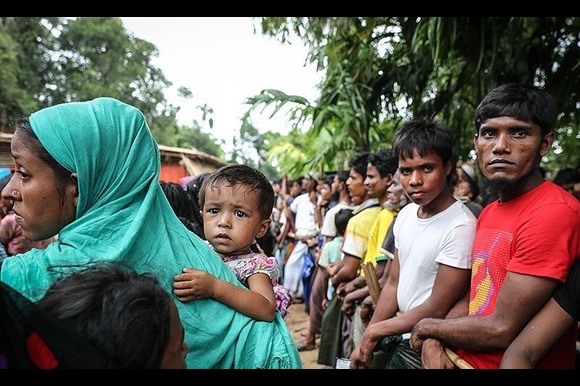Aid agencies are sounding the alarm over an escalating hunger crisis in Myanmar’s war-torn Rakhine State, where the World Food Programme (WFP) has issued an urgent plea for increased international support to avert what it calls a “full-blown disaster.”
The WFP is struggling to meet the soaring humanitarian needs of displaced populations in the region, including around 140,000 Rohingya Muslims who have lived in camps since being forced from their homes during communal violence in 2012. The civil war, triggered by the 2021 military coup, has devastated Myanmar’s economy and created widespread food insecurity, but conditions in Rakhine are reportedly far worse due to a prolonged military blockade.
Recent accounts from the region paint a grim picture of desperation. On April 20, a 50-year-old father at the Ohn Taw Kyi displacement camp, unable to feed his family, reportedly laced food with insecticide in a suicide attempt involving himself, his wife, and two children. He died, though the others were saved by neighbours. Similar incidents, including family suicides and starvation-related deaths, have been reported across the region.
The WFP said its global funding for 2025 has dropped by 60% compared to the previous year, allowing it to reach only 20% of those in Myanmar experiencing severe food insecurity. In March, it was forced to cut aid to Rakhine, despite a sharp increase in the number of families unable to meet basic nutritional needs.
“People are trapped in a vicious cycle – cut off by conflict, stripped of livelihoods, and left with no humanitarian safety net,” said Michael Dunford, the WFP’s Representative in Myanmar.
“We are hearing heartbreaking stories of children crying from hunger and mothers skipping meals. Families are doing everything they can, but they cannot survive this alone.”
The crisis in Rakhine is compounded by the collapse of trade and agricultural activity. In 2023, Myanmar’s military sealed off the region in an attempt to prevent supplies from reaching the Arakan Army, an ethnic insurgent group now in control of much of the state. The Rakhine capital, Sittwe, is under siege and only reachable by sea or air.
Farmers have ceased harvesting rice due to an inability to reach markets. Rohingya communities, already among the most marginalised in the country, have been barred from fishing — their primary means of sustenance and income. Even when international aid organisations have resources, military restrictions often prevent them from accessing areas under Arakan Army control.
“There are no jobs, and prices have increased fivefold,” a camp resident told the BBC. “People can’t go out. There is no income. Most people survive now by eating boiled taro roots.”
The military’s compulsory conscription effort against the Arakan Army has placed an additional burden on families. Thousands of Rohingya men have been forcibly recruited to help defend Sittwe. Families unable to send a conscript must help fund those who have been sent — often using money from the WFP allowance, which was halted in March and only resumed in June. By then, many households were deep in debt.
The WFP is now observing extreme distress across all communities in Rakhine. Its latest reports cite rising debt, begging, school dropouts, domestic violence, social tensions, and even human trafficking as growing consequences of economic collapse.
Although the WFP did not single out specific governments, it noted that its funding crisis is a direct result of widespread donor shortfalls. A particularly impactful cut came from the United States, where the Trump administration slashed 87% of funding to USAID. In 2024, the U.S. had contributed nearly $4.5 billion to the WFP — nearly half of its total government funding.
The humanitarian alarm comes nearly a year after the United Nations issued a stark warning of a “famine in the making” in Rakhine. That the WFP is once again issuing emergency appeals nine months later underscores the severity of the crisis and the increasingly hostile environment in which aid agencies are operating.
Without immediate action and renewed international funding, the threat of mass starvation in Rakhine looms dangerously close.






